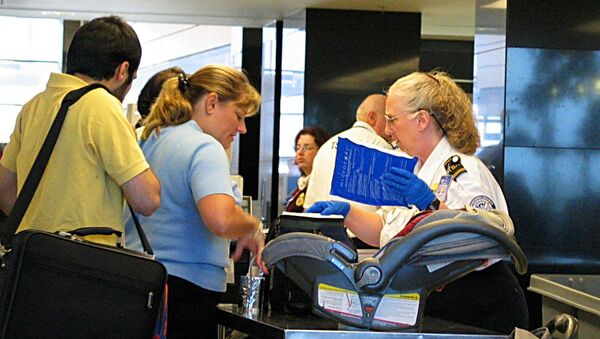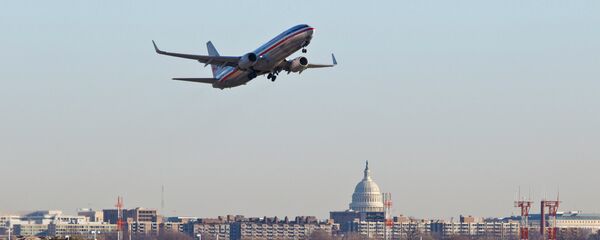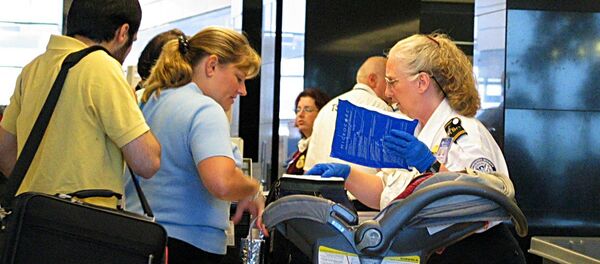WASHINGTON (Sputnik) — Mistakes are bound to be made when the TSA is so large, Friedman noted, but expressed concern about the scope of the recently-revealed security lapse of the agency employing numerous workers with ties to terrorist activities.
“The sheer size of the TSA and the [scale] of the implementation process certainly makes this a difficult task,” State University of New York at Albany Associate Political Science Professor Sally Friedman said on Tuesday.
On Monday, the US Department of Homeland Security Office of Inspector General said in a report the TSA was unable to detect 73 commercial airport workers who had links to terrorist activities, but were given access to secure airport areas.
Boston University Assistant Mass Communication Professor John Carroll said TSA officials were swamped by the enormous volume of information coming their way on a daily basis, and experienced difficulties in coordinating it all.
“The challenge is to deal with the volume of information and coordinate all the different facets of homeland security,” Carroll explained.
Carroll suggested TSA senior managers needed to focus on priorities more, especially on keeping their watch lists comprehensive.
“You would think… [that’ making sure those people on watch lists don’t get access to the aviation system …it would be natural for them to have the most comprehensive [watch] list,” he concluded.
Colgate University Political Science Professor Michael Johnston blamed patronage and hiring preferences for many of the TSA’s problems.
“Maybe there has been patronage hiring or preferences given that shouldn’t have been offered,” Johnston said.
Carroll, however, added the TSA was too tangled up in bureaucracy and suffered endless duplications on its watch lists, while a tremendous amounts of miscommunication took place within the organization.
The TSA needed a better system of strategic oversight to minimize these problems, he concluded.



